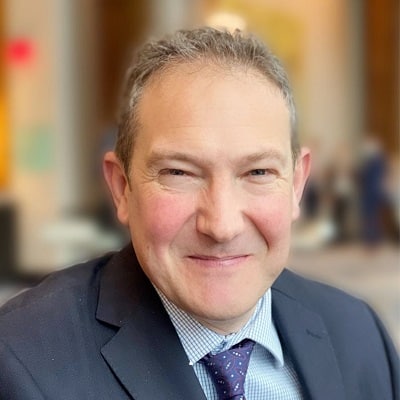At IHS Markit...we question everything
Information quantity has exploded in the last decade, with "Big Data" made readily available by a wide range of sources. Current talk about "fake news" has led to calls for improved education, allowing people to better judge the merits of easily accessible information. Knowing who to trust, what to trust, and why, is not always easy to do or learn to manage, but at IHS Markit we've made it our business for decades.
The People
The exploration & production (E&P) industry is a broad and dynamic place, even in a downturn, with plenty of information available. Making the right decisions on investments and portfolio management has never been more critical. Expertise and know-how are required to construct carefully curated workflow-centric datasets of the highest calibre. The content can be drawn from a wide range of sources-some of which might be questionable-and it can take weeks or months to sift through and high-grade. Although unreliable rumours are an interesting and often informative part of the E&P world, deliberately faked information is not too common in the industry. The biggest enemy of quality is incorrect, incomplete or at times incomprehensible, non-standardized information often made available unintentionally. There are key attributes core to taking this information and creating reliable, quality-assured content. We've found that it takes concentration, persistence, judgement and an enquiring mind. These are all skills we look for in our content workforce of more than 1,000 people spread globally. Those experts also possess great technical language skills because translation software doesn't always do the job properly. Add to this specialized subject knowledge and regional awareness and you have the makings of a team ideally suited to sifting through a wide range of incoming information and making sure that only the most reliable content makes it into the IHS Markit Upstream databases.
The Technology
An army of people couldn't go through the huge quantity of available information. Technology plays a key part in delivering the perfect content. The key to technology adoption and deployment is making it an ally in handling terabytes of information that passes through our systems on a regular basis. Out of the box, the technology is not immediately of value. It needs to be shaped using expertise that helps to make it relevant and productive. Thousands of business rules are embedded in our everyday tools, minimizing the risk of us introducing erroneous information, or allowing it to persist. The rules range from basic essentials to more complex checks. For example, checking that an offshore well isn't located on land is a basic check, but not all our competitors do this inspection. At the other end of the spectrum we check less obvious things - has the stated production for a field exceeded estimated recoverable reserves? What does this mean - a missed reserves estimate or an error in production figures? Our systems can sanity check production numbers and spot errors through trends or even just basic math. We value the presence of our technological sidekicks but we're not complacent - they apply logic that has been coded and this can have human errors. Before our technology is applied to our business, it's tested in quarantine and signed off. Sometimes this can be a task lasting up to a year for more complex work. The end game is well worth the huge investment of time, money and people though. This massive logical capability is active around the world 24 hours a day, applied to the task of making our content the best that there is.
The Processes
Processes are the glue binding our people and technology together. They're critical as just having great technology and the best people won't get you to content perfection by themselves. You have to have a solid foundation of time-trusted process and evolve them to match the evolving landscape. Our experts are taught from day one to ask of every piece of data - "Is it right? Is it justifiable? Does it come from a reliable source? Can it be cross-checked?" If the answer is no to any of these questions, then we work until we either have a quality level we're comfortable with, or decide not to include the data. How? We check other published sources or even call contacts in the industry. For example, if we see something in a country's production profile that doesn't seem to add up, we will work hard to develop the context for those numbers, and if we can't, then we start calling people. Not everything can be solved online. Sometimes you need to work through quality checks with those responsible for the original content - our experts maintain networks of contacts who they can call on to help get to the right answer. Even in the digital age, a network of experts still provides the essential jury to help make the right call on a piece of information.

Figure 1: Data governance for the energy industry at IHS Markit
Many are glad we called them before we released anything, as no one benefits from having poor data supporting essential and costly decisions.
When our customers work with IHS Markit content, they are working with people, processes and technology that have evolved to deal with everything from fake news to an inadvertent extra zero in a seamless manner. We even give confidence levels so our customers can see where we're not 100% sure, but happy enough to have the information in our database.
It's our role, as a premium content company, to question everything so that our customers don't have to. We strongly recommend that you apply this to all your other data sources too.
Michael Wynne is a Senior Director at IHS Markit.
Posted 29 June 2017
This article was published by S&P Global Commodity Insights and not by S&P Global Ratings, which is a separately managed division of S&P Global.

